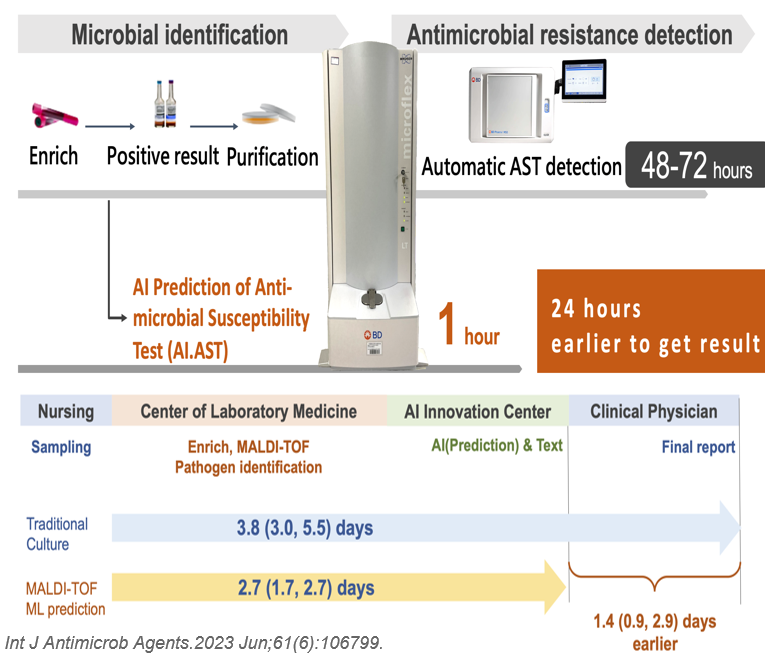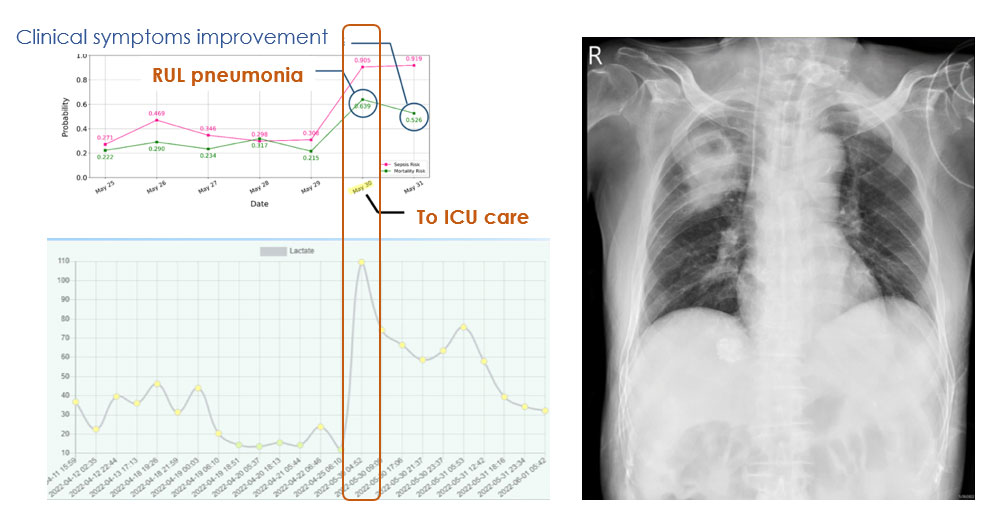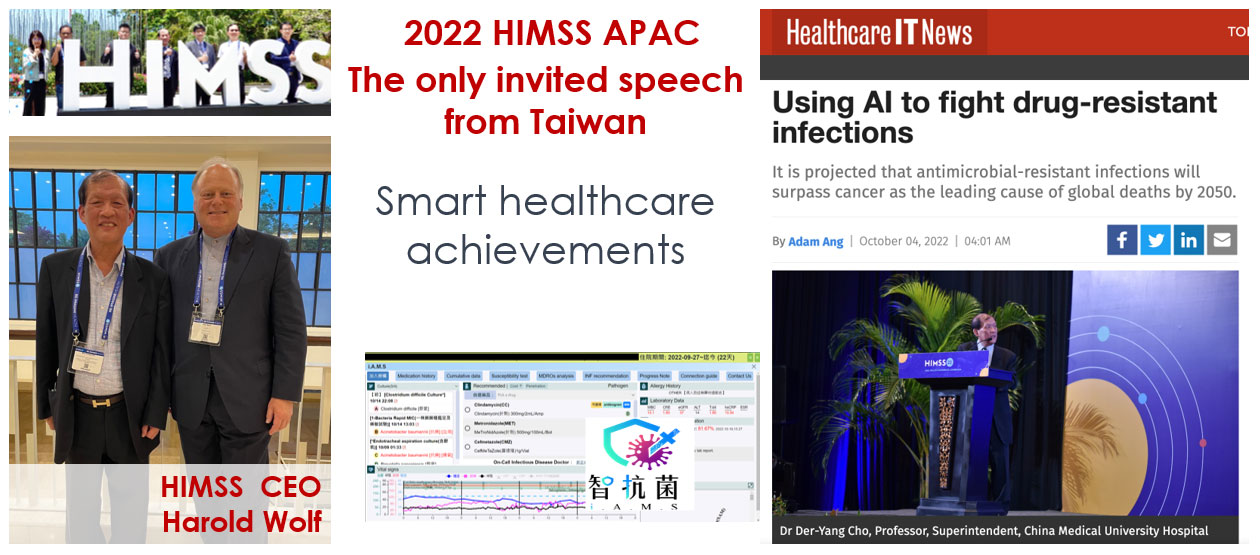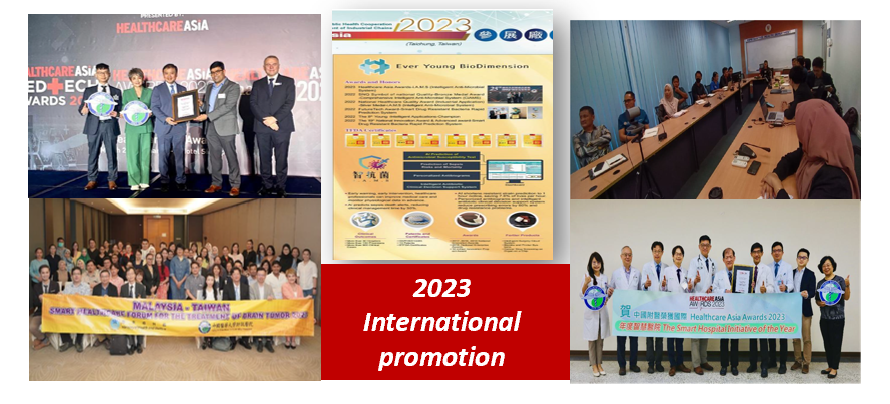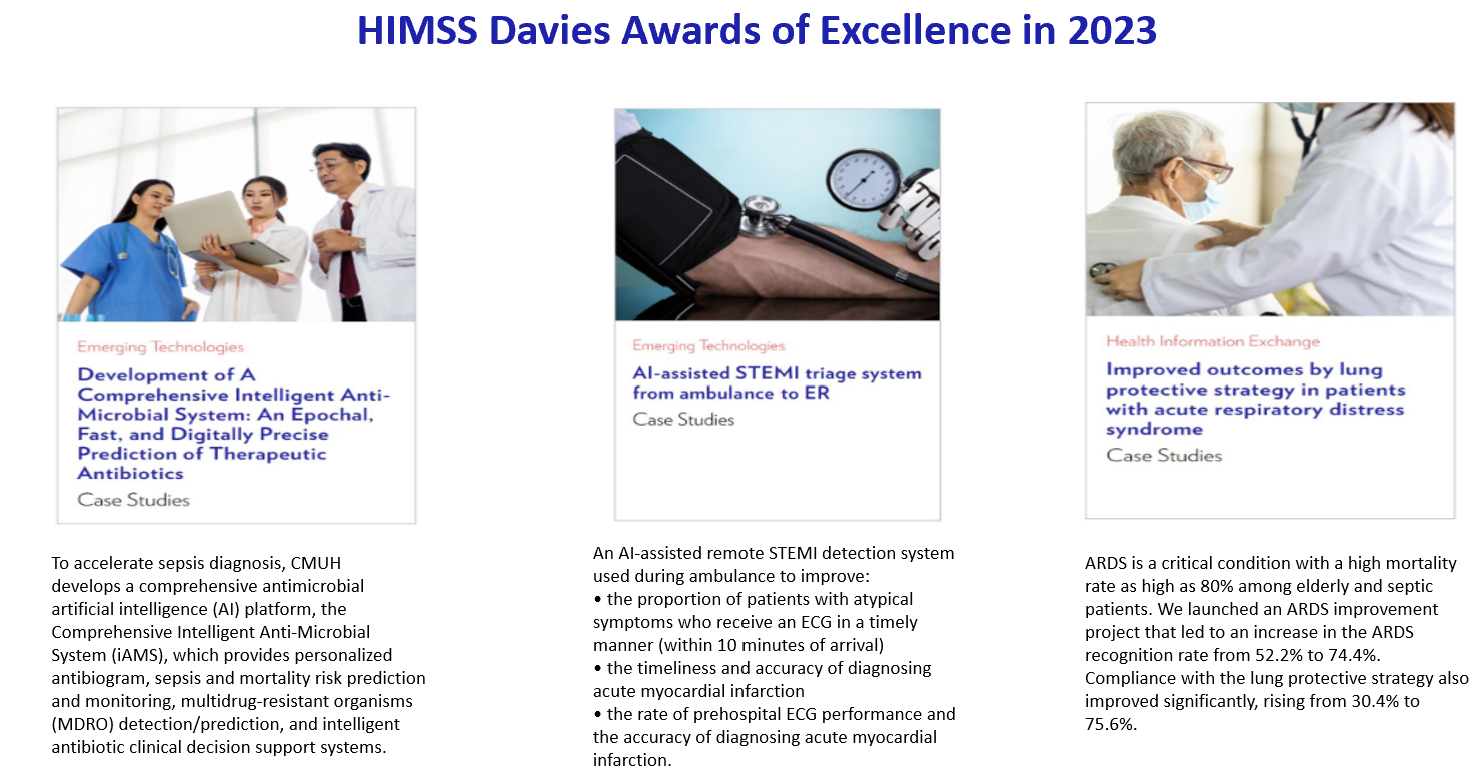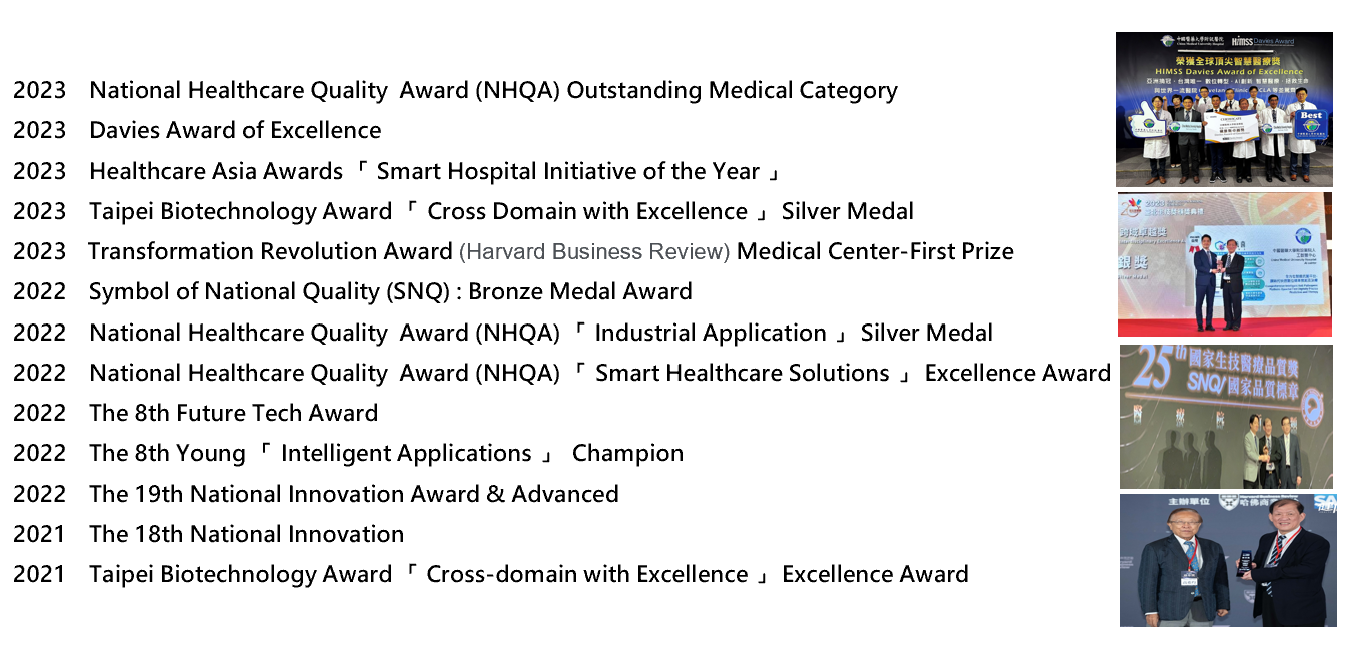Intelligent anti-microbial system (i.A.M.S)
Research & Innovation
Intelligent anti-microbial system (i.A.M.S)
AI prediction of microbial resistance, personalized antibiogram, antibiotics decision support system, risk of sepsis and mortality AI prediction
Sepsis impacts and causes millions of deaths annually worldwide, including Taiwan. The mortality could be up to 29.2%. Failure to detect and diagnose sepsis early is an important factor for high mortality rate. Per hour of delay in appropriate antibiotic administration, the mortality rate increases by 7.6%. Additionally, the extended- and pan-drug resistant bacteria, known as “superbugs,” spread rapidly globally. The World Health Organization (WHO) reported that approximately 700 000 individuals died from infectious disease caused by resistant bacteria, and approximately 10,000,000 individuals would die due to “superbug” infection in 2050, which impacts more than that of COVID-19. “Optimizing antibiotics usage and developing rapid tests” are important issue in antimicrobial stewardship. The microbial diagnosis in the Center of Laboratory Medicine is the beginning of all our effort. However, the critical condition changed more rapidly than that of the traditional method to identify pathogens and antimicrobial susceptibilities.
In order to resolve the problems, our team produced the first and most complete “comprehensive antimicrobial system” that focuses on patients with infection and sepsis. The team is composed of the infectious disease and critical care medicine-specialized physicians, Laboratory Medicine Department, Pharmacy Department, Information Technology Department, Big Data Center, and Artificial Intelligence Center. We organize the big data and information and use the AI prediction to help clinicians diagnose more rapidly and perform precise therapy.
The “prediction of sepsis risks and mortality” alerts clinicians to implement measures for patients with high risk. Clinicians could obtain information from previous pathogens and antimicrobial susceptibility tests for targeted patients by “personized antibiograms,” and the locally common pathogens with antimicrobial susceptibility by “intelligent antibiotic clinical decision support systems.” Furthermore, the systems also help physicians prescribe empirical antibiotics with adequate dosage based on the weight, liver, and renal function. “AI prediction of antimicrobial susceptibility test (AST)” could text physicians the antimicrobial resistance prediction results earlier than that of the traditional method and allow them to adjust antibiotics.
We integrated the scattered data over time, AI prediction of sepsis, and AST in a friendly platform to achieve early sepsis detection, more rapid pathogen and antimicrobial susceptibility identification, and appropriate antibiotics use. Based on the “comprehensive antimicrobial system,” our team would offer more personalized precision medicine timely with higher quality combined with gene information.

